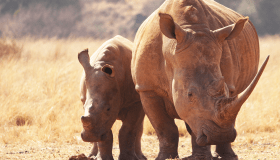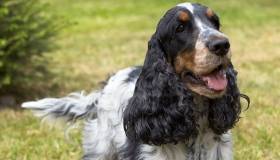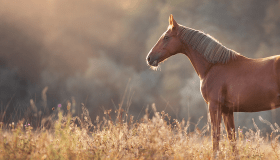
August 29, 2019 – Salmonella infections are big news when an outbreak in people occurs, sending health officials scrambling to find a source. But Salmonella can cause serious illnesses in other species, too, which we don’t hear as much about. Birds, cats, reptiles, cattle and dogs – many animals are susceptible. Horses are especially sensitive to Salmonella infections, which can be serious and even fatal in some cases. For equine veterinarians and horse owners, it is an ever-present fear.
Salmonella is easily transmitted from horse to horse and can be particularly devastating in areas where many horses are kept together, such as boarding facilities, fairs and shows and veterinary hospitals. Once an area is infected, it is difficult to control the spread of the infectious agent without extreme measures such as hospital or facility closure with extensive disinfection. Increasing levels of antibiotic resistance among Salmonella species makes for an even more desperate situation.
New information is needed to understand disease transmission and perpetuation in order to contain an infection when present and prevent spread of already existing infections. Morris Animal Foundation recognized the need for more research in this area and is currently funding a study that addresses a major concern of horse owners and veterinarians; how long do horses recovering from illness shed Salmonella in their feces?
“We know that only a small proportion of horses get sick from Salmonella but we also know that stressed horses can shed Salmonella in their feces,” said Dr. Brandy Burgess, principal investigator of the study. “It’s a challenge for owners to manage a healthy horse that could still be shedding. Some boarding facilities won’t take a horse back on site so owners have nowhere to go. The question we want to answer is how long do we need to wait before that horse no longer poses a risk to people or other animals.”
Dr. Burgess decided on a bold plan – enlist horse owners and veterinarians from across the country to collect fecal samples weekly for up to eight weeks in horses recently hospitalized. The team also will collect questionnaire data from the owners once their horses are back in their home environment. To date, 53 different horses from 18 participating hospitals have enrolled, but Dr. Burgess wants to get data from many more before the study is complete. The team is hard at work recruiting more horses and owners and hopes to complete the project in the next one to two years.
“When I counsel owners and veterinarians about risks associated with Salmonella, people are understandably concerned and fearful. Some even think about euthanasia,” said Dr. Burgess. “These extreme responses occur because there’s a lack of information about shedding. I want to change that.”
Morris Animal Foundation funded its first horse study in 1960 and we’ve been at the forefront of equine health ever since. Learn more about our work and find out how you can help all animals live longer, healthier lives.




